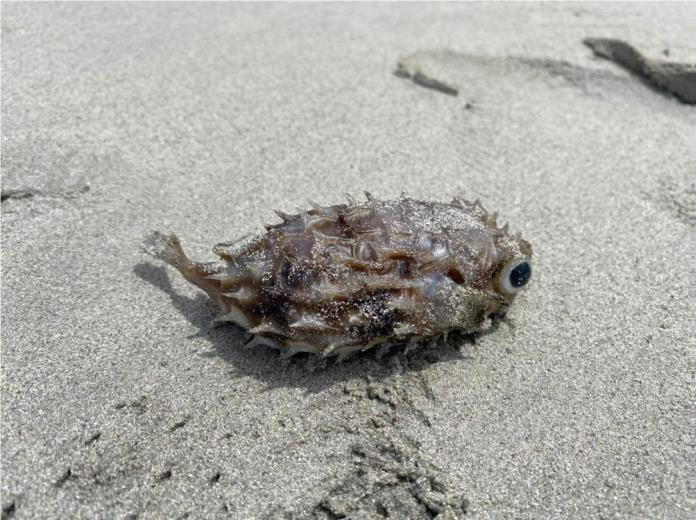Dead pufferfish along Mogadishu beaches threat to human life-University study

GOOBJOOG NEWS|MOGADISHU: A study by a university in Somalia has warned of possible mass human poisoning following the deaths of the highly poisonous pufferfish on the shores of Mogadishu.
The study by City University’s Institute of Fisheries and Marine Sciences has not concluded the cause of the deaths of the fish but notes they could have been poisoned or suffered natural deaths.
Dead pufferfish, locally known as qurumbow have been washing ashore in beaches around Mogadishu in recent weeks raising fears of possible poisoning. “Previous writings suggest that such mass deaths sometimes occur naturally. Qarambow fish that live in shallow water near the coast cannot live in the ocean. Winds, storms and waves sometimes pull water out and throw fish to shore,’ the University’s preliminary report reads in part.
The University has warned against consumption of the fish owing to the dangerous chemicals they contain.
It adds that the fish may have ‘died from bacterial or fungal infections’ and warns against human consumption. Pufferfish is said to contain tetrodotoxin, a substance that makes them foul tasting and often lethal. To humans, tetrodotoxin is deadly, up to 1,200 times more poisonous than cyanide. There is enough toxin in one pufferfish to kill 30 adult humans, and there is no known antidote.
The discovery of the dead fish comes amid fears that the recent sinking of a ship containing several tones of dangerous chemicals in Colombo, the capital of Sri Lanka could cause a catastrophe to marine life. A report by The Washington Post suggests that lifeless fish with plastic pellets lodged in their gills have littered Sri Lanka’s sands. “Dead turtles and birds have been reported on the coast as well, although the connection to the ship is still being investigated,” The Post added.
Scientists quoted by the newspaper pellets from the ship will find their way into Somali waters. Dumping of dangerous waste has been reported in Somali waters for several years.